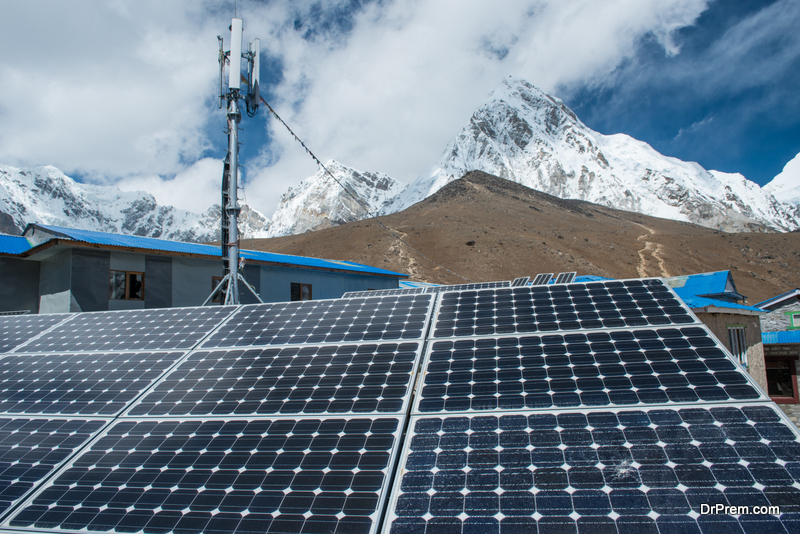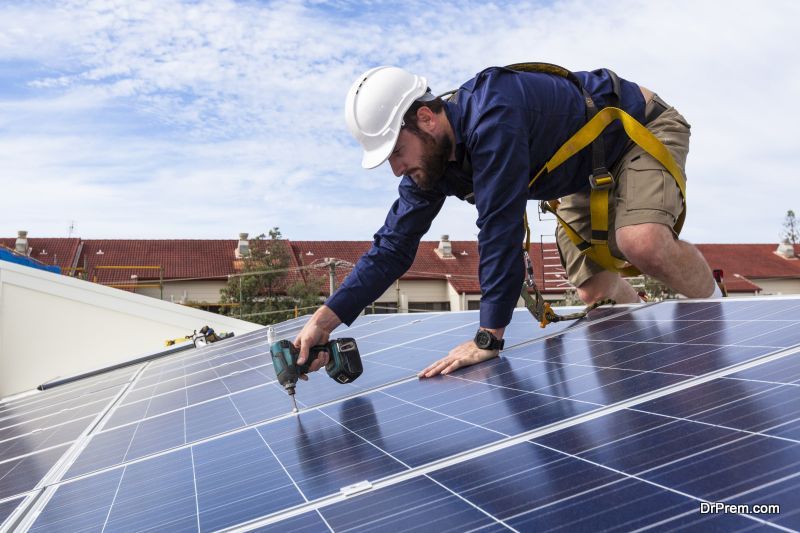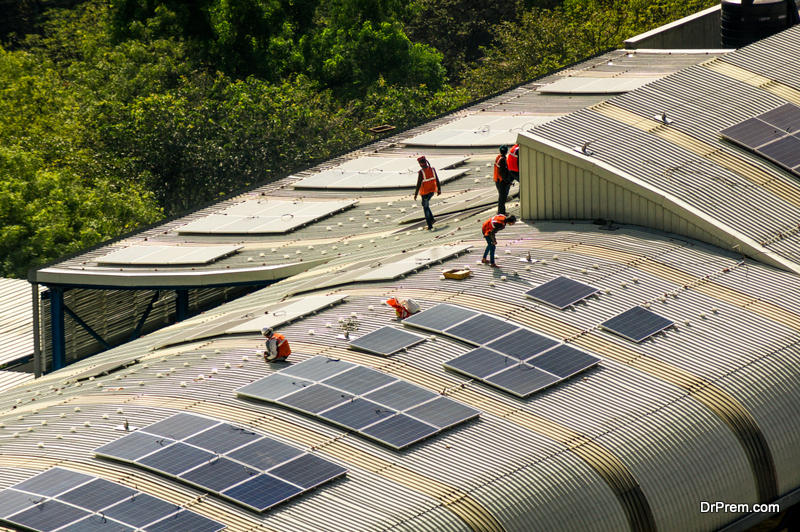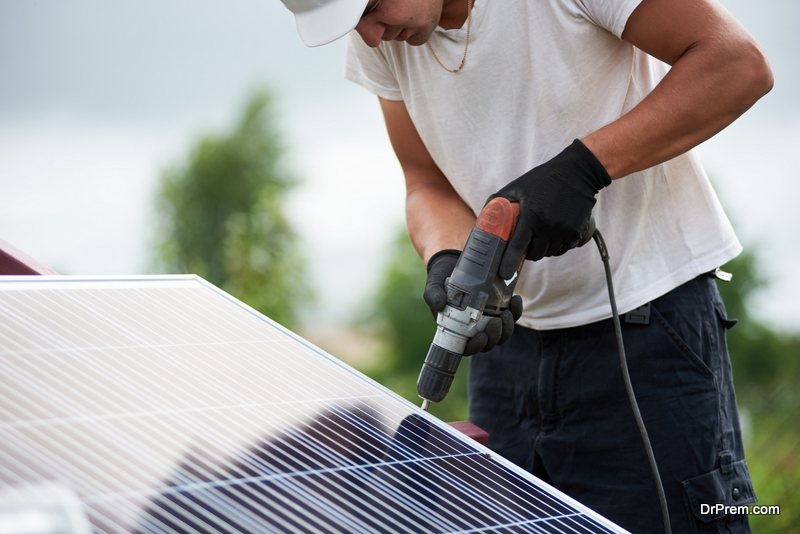With solar power rising in popularity due to their benefits and constant technological improvements, many homeowners are considering making the switch to solar. But with more people turning towards this recently improved technology, the question always arises: are solar panels worth the investment? With this short guide to solar power, we’ll highlight the good and bad, and give a few tips to help you decide the answer to that question for yourself. Without further ado, here’s a list of the pros and cons that come with solar power.
Benefits of Installing Solar Panels
You can’t run out of sunlight:
 I
I
It’s a renewable source of energy that’s regularly available and comes in abundance. The ever-improving capabilities of solar energy allow us to make the best of sunlight and extract more power with better efficiency. As long as there’s the sun in the sky and a workable net metering in Texas (or any other place that receives a lot of sunlight), there’ll be a sustainable source of energy on Earth for generations to come and beyond.
You can save good money in the long term:
Since your solar panels will be generating energy for your household, you can spend less on utilities. What appeals to many homeowners is the fact that if you can be totally self-reliant on solar, your energy is pretty much free. If you’re making more energy than you use, you can even get paid for sending that extra energy back to the grid. And on the extra money you can invest in some cryptocurrency – buy BNB, Bitcoin, USDT etc to gain even more profit from it. Solar panels are also an effective way to increase the value of your home.
But apart from the savings you can obtain from lower utility bills, solar panels can also enable you to save money on your electricity plans. Generally, when a consumer gets solar panels, part of their return of investment (ROI) is how much they can make selling back to the grid. Net metering in Texas is different than other areas of the country. Instead of selling back power to the utility, you need to pick an electricity supplier that has solar buyback electricity plans.
With these plans, you’re allowed to send the excess solar energy back to the grid and earn bill credits. When this happens, you’ll not only save money on your monthly energy bills but you’ll also make your home more sustainable while helping nearby homes and businesses get access to electricity from the excess solar energy.
The panels are low maintenance:
Panels built for households will need one or two cleanings yearly. Apart from that, the inverter would be changed every few years. Services for cleaning don’t really come too pricey, so you won’t have to worry about heavy upkeep.
Solar panels produce zero emissions and noise:
They don’t pollute the air with harmful gasses like natural gas or fossil fuels, making zero contribution to your carbon footprint. Also, as more households become less dependent on conventional energy sources, we can turn to fewer carbon emissions overall. Solar panels are a silent producer of energy, making no noise unlike other sources such as wind turbines. To keep your carbon footprint low, check this source link for dehumidifiers that can be run on solar energy that’s stored.
Solar can be used almost anywhere in the world:
You don’t have to prioritize your geographical location or local climate. Though some geographical areas will benefit more from solar power than others, solar power is sufficient for powering households to a significant degree almost anywhere.
Solar panels have different applications:
Solar panels can be used in several ways. Aside from providing renewable source of electricity to households wanting to save on electricity bills or to those that lack grid connection, they can also be used to distill water in countries like Africa, or even to power the satellites located in space.
Moreover, with the advent of thin-film solar cells these days, solar energy can be added into the materials of the buildings, including windows. So, given the increasing number of applications, having solar panels can be a worthwhile investment to consider.
Some Concerns
It’s a pricey investment:
The actual purchase and installation of solar panels are a costly one, and though you may be spending a lot initially, you’ll be saving good money in the long run. That being said, it wouldn’t be a great idea to buy solar panels for your current home if you plan on moving anytime soon. You wouldn’t be able to move the solar panels with you without having to pay a big extra amount of money.
It isn’t always sunny out:
Solar panels (obviously) require sunlight to collect power from as efficiently as possible. They’ll collect little power on a cloudy day and none through the night. You may have to monitor your energy consumption during these times of day, especially if you haven’t invested much on energy storage for solar.
They take up lots of space:
The more power you want to generate, the more surface area you’ll have to contribute to solar panels. Smaller roofs and yard space might mean you can’t be totally self-reliant (or as self-reliant as you’d like) in terms of energy demands.
Considerations Before Switching to Solar Power
Solar panels are a large investment that requires a good amount of preparation and research for you to make informed decisions. That being said, here are some points to look for:
Look for incentives:
 Depending on where you live, you might be able to get helpful or even generous grants from your government and/or state that help make the costs more affordable.
Depending on where you live, you might be able to get helpful or even generous grants from your government and/or state that help make the costs more affordable.
Check your current utility rate:
See how much you’ll really save when switching to solar by finding out how much you spend on electricity now. Then compare to see if the costs of solar power will be less than from utilities. It’s a little tricky and takes some calculations, but it’s necessary to determine if solar panels are a good financial decision for you.
Check the condition of your roof:
You need a roof in good condition to support the solar panels. If your roof is damaged or might need work soon, get that work done now, not later, before you speak with any installation service.
The Bottom Line
Despite the initial hefty price tag that solar panels carry, this investment will eventually pay dividends. If you’re based in a location suited for solar panel installation, it will provide financial savings in the long run. Plus, given that today’s solar technology is more advanced than before guarantees improved efficiency rates than in the past.
Article Submitted By Community Writer




